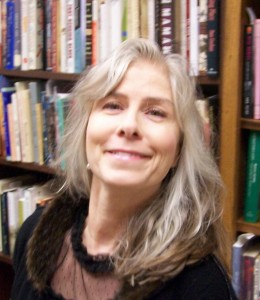 In the summer of 1991, I visited Saint Petersburg, Russia, with a group of “youth ambassadors.” The Cold War was melting, the Soviet Empire was crumbling, and efforts were being made to forge personal and political connections between two regions long divided by competition and suspicion.
In the summer of 1991, I visited Saint Petersburg, Russia, with a group of “youth ambassadors.” The Cold War was melting, the Soviet Empire was crumbling, and efforts were being made to forge personal and political connections between two regions long divided by competition and suspicion.
The city had recently returned to its original name. In 1703, Peter the Great had founded and effectively named the city after himself. Then, in 1914, at war with Germany, the city became Petrograd—a distinctively Russian, rather than Germanic, name. Almost a decade later, after the Bolsheviks took power, the city was dubbed Leningrad, which it remained until 1991.
I stood in the city in the midst of this transition, its attempt to reclaim something of its former self by returning to its former name.
The Irony of Leningrad
The irony of Leningrad is that Lenin itself was not the original name of the man it referred to. It was a name intentionally acquired by a revolutionary with big ambitions. The man in question was born Vladimir Ulyanov. To cover its bases, in 1924, the Soviet Union designated a different city Ulyanovsk.
In fact, three major figures of the Bolshevik Revolution had all changed their names. While working to subvert the Russian Empire, Lenin wished to avoid capture by hiding his identity—not coincidentally choosing a pseudonym that was both terse and memorably alliterative. Lev Davidovich Bronstein became Leon Trotsky to distance himself from his Jewish ancestry, an effort that was ultimately unsuccessful, despite even his own antisemitic rhetoric. And Joseph Dzhugashvili became Joseph Stalin because—well—Stalin means steel. It was a statement of personality and philosophy. It was a kind of one-word manifesto.
My Own Contrivance
When my grandfather was born in 1905 in Miskolc, Hungary, his parents gave him a last name different from their own. While my great grandfather’s surname was Rosenzweig, my grandfather’s was Racz. Together with his first name, Zoltan, my grandfather’s name was consummately Hungarian.
I used to think that the name change was an effort to hide the family’s Jewish identity in an atmosphere of antisemitism, but this explanation doesn’t quite compute; my great grandparents were highly religious and my grandfather became a rabbi, hardly an effort to hide his religious identification. Though the family was undeniably subject to antisemitism, the name change in 1905 Hungary most likely was an effort to assimilate in terms of nationality, not religion, in a society that elevated Hungarian national identity above all others.
Ironically, outside of Hungary, the name Racz is a mark of ethnic and national difference. In the U.S., it is typically encountered as unfamiliar and unpronounceable. In effect, because my family immigrated to North America, it became a different name, not one of belonging or sameness, but one of separation.
I’ve spent my life both correcting others’ pronunciation of my name and deciding how to pronounce it myself; would I roll the r, would I say the cz like tz as done in Hungarian—a language I do not speak? Would this be more authentic than an Americanized pronunciation such as Racks or Race or Rahz or Rocks?
I was trying to find my original, authentic name, my “real” name.
But I could not find it. There was no “real” name—by virtue of my grandfather’s name change and then my family’s change of country and context. My name was wholly my own, connected to a history but not predetermined by it.
And then I changed it.
My last name is now Knudson. To be clear, the K is audible, pronounced almost as if it were its own separate syllable, but not quite.
The reason I considered changing my name at all when I married was its history, which taught me that a name is not identical to that which it names. My name was—is—a point of choice rather than an inevitability.
The Name of God
In Hebrew, the most sacred of name of God is never spoken. Rather, one way to refer to God is HaShem, literally, the name.
Within this is an acknowledgement of language’s propensity to limit, the way its inevitable connotations make it unsuitable to refer to that which is beyond definition: God, the infinite.
In this way, theoretically, either by remaining beyond speech, or, alternatively, by being the name instead of a name, God can exist apart from circumstance and context, from concerns of nationality or politics or culture or campaigns for power or control—while also encompassing it all.
The infinity of God remains.
Being There
As human beings, with names, we can’t remain infinite. We take names with histories and connotations, and intentional and unintentional meanings that locate us within a social, political, and historical framework. When we learn someone’s name, it becomes inextricably linked to our sense of who they are.
A sequence of three names identifies me, Johannah Racz Knudson, each term of which is commonly considered difficult to pronounce. Each is subject to misunderstanding or doubt, which reminds me constantly that no name is identical to its owner. I’m constantly negotiating the distance between my self and my name. Even as I’m asking the world to get it—to get me—right, the experience itself shows that there is no perfect union between name and essence.
Via my “difficult” name, I am inscrutable, but also undefined.
A Slippery Medium
As writers, we work in a slippery medium, one that points to something but that is, in essence, nothing. Names, words, are carefully arbitrarily selected. When we write them, we believe we know what we are saying. We do our best. We write and revise. We name and rename. We write a poem and then another.
Regimes rise and fall. People move across borders and oceans. Names change. Languages. Words flow, in flux.
And we write them down, as they are, right now, in this moment. If we’re lucky, someone, somewhere, reads them, and understands.
